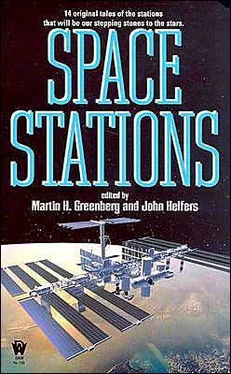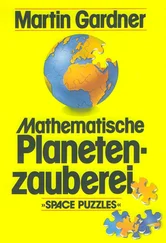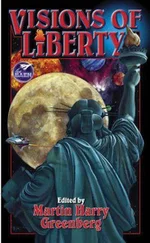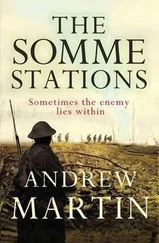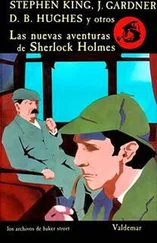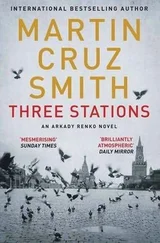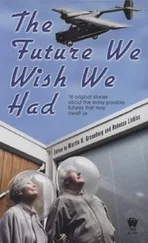“My father—” The decision seized me in an instant, “I’m going out on Ten.”
“I thought you might.” I saw her tears again, but she didn’t try to keep me. “Wherever you find him, still at the station or back on some future Earth, he may need you more than I do.”
There were just two of us on Ten; she had found no other volunteers. We met the pilot in the same bar where she had found my father. He was Colin McKane, a rawboned, hardbitten Scot who had abandoned his native heaths to scout a hundred planets and found none he cared to see again.
“My home, my family, all I ever loved—” Moodily, he sloshed another shot into his glass. “All thrown away in a crazy lust for new worlds and strange adventure. There’s nothing left I really care about. Matsu and LeBlanc were my last friends, fellow exiles from long ago. They went out on Nine. I promised to go out and bring them home.”
He shrugged, with a twisted grimace.
“If we can expect this wasted Earth to make a better future for us.”
Hiro Matsu and Jean LeBlanc. I’d known them in training. Both of them scientists of some distinction, they were both devoted to ideas science rejected. I’d helped Matsu load crates of equipment designed to test a conviction that he could reverse gravity by reversing the spin of cosmic anti-strings. LeBlanc’s project was to look for a way though the singularity, and backward in time.
“Crackpots, maybe,” McKane said. “But we can’t leave them there to die.”
We found NBH truly black, lost in the vast gulf created as it consumed the nearby stars.
All we could see was the brighter patch of magnified stars beyond it. Nodding at them on the monitor, McKane turned uneasily in his seat to shake his head at me.
“Feel it?”
Even there, trapped deep in its unforgiving grasp, there was really no force I could feel.
Spinning around the lowest safe orbit, we were still in free fall, the enormous gravity precisely balanced by the centrifugal force that held us there. Yet suddenly I was chilled by the recollection of a moment of terror in my childhood, when my father was tossing me high above his head and catching me as I fell. My mother heard my screams, sensed my fright, and made him stop.
That left me with a dread of high places. Now, even in the stable-seeming ship, I felt that was falling past the stars into an infinite and bottomless pit, with no support and no escape. A wave of sickness left me weak and cold with sweat. I had to grip the seat restraints and look away.
McKane grinned at me, and bent again to his flight computer. The asteroid was harder to find than the black hole. It had strayed away from the galactic coordinates Arkwood and my father recorded for it, and the starlight was far too faint to reveal it.
“A wild black cat,” McKane called it, “hiding from us in a big black cellar.”
Searching the spectrum for its locator beacon, he heard nothing. He made a dozen skips, with stops for radar searches. Earth was two long days behind us before a final jump brought it into searchlight range. A mass of dark iron a mile or so thick, ripped from the heart of some shattered planet, it was all jagged points and knife-sharp edges. We watched its slow spin till the dock came into view, a squat little tower jutting from a flat black fracture plane.
It showed no light. McKane called and got no reply.
“It looks dead. If you want my hunch, LeBlanc and Matsu found it already abandoned or dead. The safest thing for us is to get out now.”
“I came for my father.”
“There can’t be anybody here.”
“I’ve got to know.”
“If anybody’s alive, why don’t they have the radio beacon going? And a light flashing to show us in?”
“I want to dock and see.”
“A risk I was never paid to take.” Stubbornly, he shook his head at the telescreen, where a bright red star beyond NBH stared at us like a baleful eye. “If they’re gone, we’ll find ’em gone. If they’re dead, we’d likely join ’em.”
I persisted till he nudged us with the thrusters to overtake the tower and ease us to the dock. The station was tunneled deep into the asteroid, for whatever shelter it might offer.
The dock was on the spin axis, where we were weightless.
When we were coupled to it, he turned to scowl at me.
“Are you sure you want to take the risk?”
Nervously, I said I did.
He slid a sleek little handgun out of a shoulder holster and wanted me to take it. I refused it; I had never fired a gun. He found a flashlight for me and opened the air lock.
“Watch every step.” He looked at his watch and waved an ironic farewell. “Whatever you find, make it quick. I’ll give you three hours.”
The door thudded shut. Air hissed. My ears popped to a pressure change. The inner door opened into darkness. Listening, I heard no sound at all. The air was cold and still. The flashlight found a switch, and light came on in a narrow passage ahead.
I caught a guideline to pull myself into the station. A bleak and cheerless pit, it had been crudely carved with laser blades into the rock’s iron heart. I dived along the guideline and stopped again to listen. Somewhere a ventilator fan whispered faintly. I shouted and got no answer. I saw no motion, saw nothing green. Sniffing for the odor of death, all I caught was dusty staleness.
The lines led me on to a radial shaft and out to a level were rotation simulated gravity.
On my feet again, I explored an empty workshop, a silent kitchen, a vacant rec room, a long chamber filled with laboratory equipment, most of it mysterious to me, all idle and abandoned now.
On a big wall monitor, I found that magnified star, dimming now as it crept away from the focal point where the black hole hung, invisible, intangible, an eternal devourer of all creation. I stared and shuddered and went on down the tunnel. Doorways off it opened into what had been living space.
One by one, I looked into empty rooms. Abandoned perhaps in haste, they were cluttered with discarded boots and clothing, books and papers, bits of electronic gear, worn playing cards, a violin with broken strings, empty ration packs and dirty dishes, empty brandy bottles. I saw a bag lettered with Matsu’s name, a cap LeBlanc had worn, and cringed from a dread of whatever had driven them away.
Near the end of the tunnel, with only two or three more rooms to search, I heard faint sounds ahead. Squeals? Squeaks? Screams? I listened and crept nearer. Animal sounds, I thought, but not from any animal I knew.
They ceased. I heard a human voice, somehow familiar, yet aping those alien sounds. I tiptoed to the doorway and peered into the room. A gray-headed stranger with a wild white beard sat behind a long desk, looking up at a wall monitor and intoning that unearthly gibberish into a microphone.
Chessmen before him on the desk were set up in an unfinished game. Chessmen I remembered! They were carved of pale green jade and some jet-black stone. My mother had found them somewhere in Asia as a gift for my father. He had used them to teach me the game the year I was five. Swept by a tide of confused emotion, I had to catch my breath before I turned and spoke to the wild-bearded stranger.
“Sir?”
Jolted, he sprang to his feet, backed away, and stood for a long moment staring at me with deep-sunk eyes.
“Who the hell—” He blinked and shook his head and limped around the desk to meet me. “Sandy! It’s you!”
He looked far older than I recalled him, bent and shriveled but alert. He seized my hand, moved as if to hug me, but checked himself to stand back and stare again. “Your mother? How did you leave her?”
“Well,” I said. “She’s tried to keep the foundation alive, but she’s had to shut it down. We came to evacuate the station.”
Читать дальше
